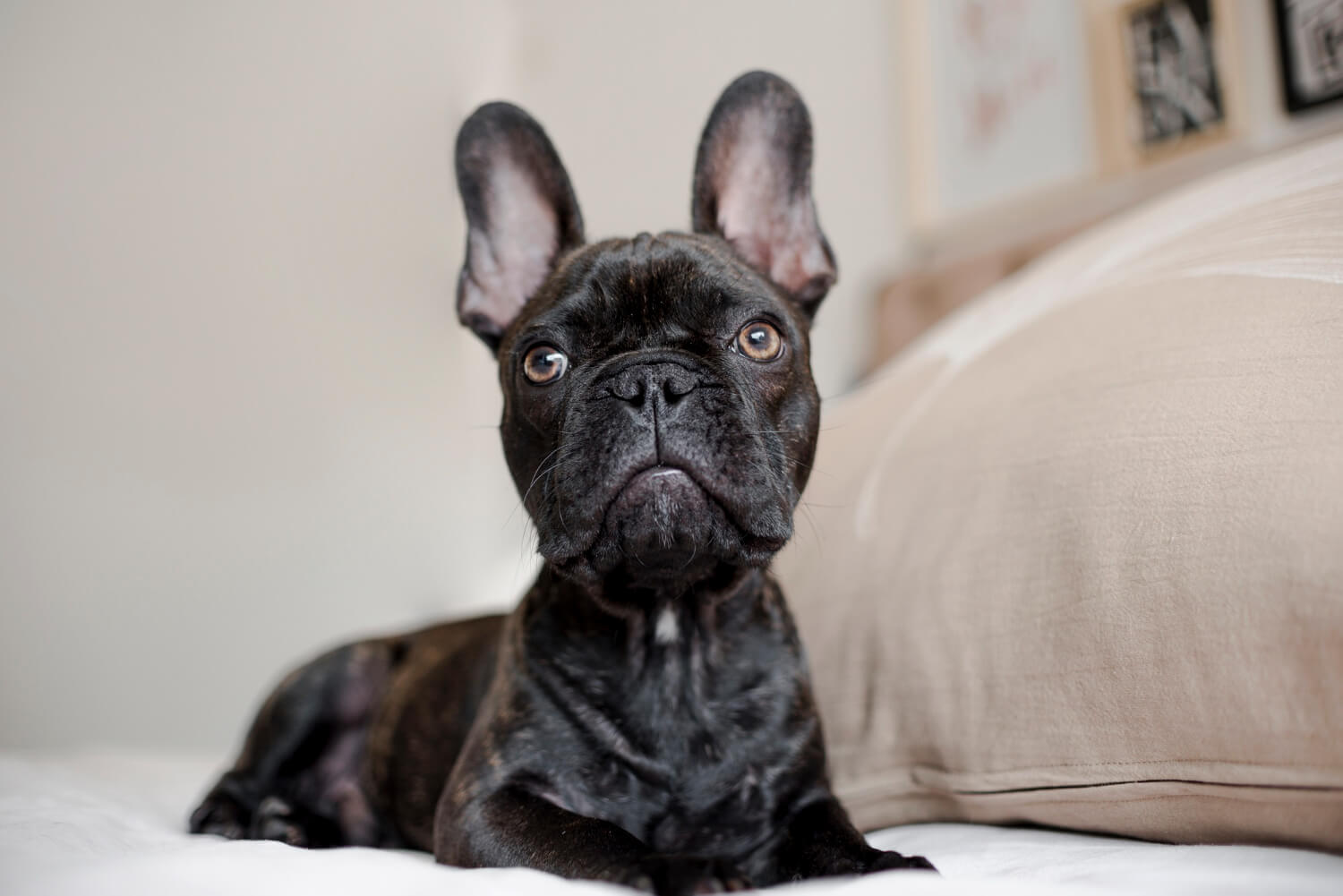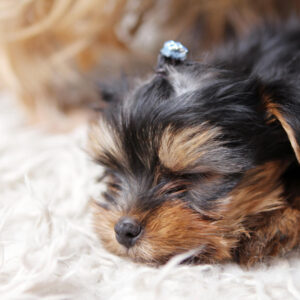
- French Bulldog History And Background
- Frenchie Physical Characteristics
- Personality & Temperament
- French Bulldog Health Factored In
- Care and grooming
- French Bulldog Training Tips
- The Wonderful French Bulldogs as Pets
- Tips for Future Owners
If you’re thinking about adopting one, or are simply a fan of the breed this comprehensive guide will give you everything you need to know about French Bulldogs.
Thank you for reading this post, don't forget to subscribe!We present all you need to know about these delightful pets from their historical backgrounds to care necessities.
French Bulldog History And Background
The Breed’s Ancestry
The French Bulldog has its origins from long ago. They are originally descended from Molossian dogs that were used for hunting, punishment, and combat in various ancient civilizations such as the Romans and Greeks.
The breed was later bred down into smaller, more easily manageable dogs and ultimately developed into the bulldog breeds that we see today.
It is believed that the French Bulldog descended from the English Bulldog, which was created to fight bulls and was banned.
Growth in France and England
Believe it or not, the French Bulldog did not originate in France. The bulldog of today was developed specifically for those purposes, although the lot only started to flower nearer to the end of the 19th century.
Certain types were bred to bait bulls, others savage other dogs. Lawmakers clashed over which activities rendered a dog vicious and what should be done.
But ambitions grew more refined during England’s Industrial Revolution when lace workers from Nottingham, in search of work flocked to France taking with them small-size bulldogs now known as French Bulldogs.
These little fellows took off to France where they were later bred to maintain some attributes and even improve on others, such as their well-known “bat ears“.
Eventually, the French Bulldog became a status symbol and companion dog, especially among the Parisian society.
Popularity Over Time
They were very popular with the bourgeois, and famous people made them a subject in paintings as attendants to high society gatherings or even as pets accompanying notable individuals.
Today, the breed is still one of the most popular companion dogs and has crafted a niche based on its diminutive size and adorable looks.
Frenchie Physical Characteristics
Size and Build
The French Bulldog is a compact and muscular dog. On average, they are 16 to 28 pounds and males tend to be slightly larger than females.
People who are living in cramped quarters, such as apartments can live satisfied in more confined spaces.
They are small but mighty in terms of their well-proportioned body causes a stocky look.
Coat and Color Variations
French Bulldogs have short hair which is really low maintenance. This is most notably seen on their coat, which can appear in brindle, fawn, cream, or pied (mixed with a white coat and one other color).
The Ultimate Guide to Maltese: Care, Health, and TrainingIn addition to these, there are black mask markings available in certain French Bulldogs making them one of a kind.
Strengths (Bat-Ears, Short Nose)
The hallmark of the French Bulldog is its bat-like ears. This makes the breed have a kind of alert and curious expression which adds to its charm.
The French Bulldog also has a shortened snout, which gives it its adorable pug face, but can lead to some other health problems as we’ll cover later in this article.
Personality & Temperament
Lovable and Affectionate
French Bulldogs Frenchies are friendly, affectionate dogs that were bred to be good companions.
They are very loyal to their owners and tend to be great companion dogs. They are attention lovers, they love it when they are the center of Tumblr!
These dogs are very peaceful and have a mild nature, this is due to their size as they are not over-energetic which makes them good for both families or a person.
Able to Fit in with Different Lifestyles
French Bulldogs are popular because of their adaptability to different lifestyles.
A French Bulldog can fit in no matter where you live, whether you are city-dwellers or like the quiet of rural living.
They are fine with apartment life since they have low to moderate energy levels and a laid-back temperament.
Social around Humans and Other Pets
French Bulldogs get along well with both humans and other animals. They are patient and have a high tolerance with children especially.
This is why they are highly territorial and possessive but not so aggressive that they cannot get along with other dogs or pets if raised together.
French Bulldog Health Factored In
One of the most typical and often seen health complications found in any breed that has a flat face, this may lead the dog to suffocate during hot weather or when feeling very stressed.
Unfortunately, as with all pedigree dogs, French Bulldogs are at risk from some hereditary health problems.
Also, can suffer from hip dysplasia, a genetic malformation of the hip socket that begins with inflammation and can sometimes lead to arthritis or mobility issues later in life.
Lifespan and Longevity
These dogs can expect to live from 10 to 12 years of age. As long as the proper care is given, a healthy French Bulldog can have a lifespan over double that of this.
These include regular vet check-ups, a balanced diet, and the right amount of exercise, which all go towards increasing the lifespan of your French Bulldog.
Preventive Health Care Tips
Annual visits to the vet for updates on vaccinations, dental care and just to make sure everything is going well.
Yorkshire Terrier: Your Complete Guide to This Elegant CompanionObesity may worsen breathing and joint problems, so you must keep a check on the weight of your French Bulldog as well.
Make sure to keep them in a cool location, especially during warmer weather to aid with preventing overheating and breathing difficulty.
Care and grooming
Coat, Nails and Ears (Grooming Requirement)
The grooming needs of this small dog breed include regular brushing to get rid of loose hair and keep coats shiny.
French Bulldogs have thin, short hair that is easily groomed.
But their ears and facial folds have to be cleaned frequently or they might suffer from different infections.
Nail care to avoid discomfort and altered gait is also necessary.
Exercise Requirements
Although French Bulldogs have lower exercise requirements than many other breeds, they still require regular, light exercise.
Short daily walks and some playtime will keep them healthy and maintain a good weight.
Because of their asphyxia, they should be prevented from overexerting all the time, especially during warm weather.
Nutritional & Diet Suggestions
Proper Nutrition for French Bulldogs High-quality dog food specially made to meet their nutrition requirements.
Easy weight gain can lead to other health issues, so portion control is important.
It is vital not to treat too much and not to feed the dishes and supply them with water.
French Bulldog Training Tips
Basic Obedience Training
Frenchies are smart, they learn quickly if taught using positive reinforcement.
Begin training as soon as you bring your beagle home with basic commands such as sit, stay, and come.
French Bulldogs can still be a little stubborn, even though they are fairly easy to train. Be patient and consistent.
Exercise And Play With Other Dogs and Humans
To avoid any issues when your French Bulldog is around other dogs and people, you must socialize with them from a young age.
Raising Pits to different environments, noises and people’s heads will hopefully turn them into confident, friendly dogs.
Managing Stubborn Behavior
While French Bulldogs are smart, they can be independent meaning that training can sometimes be difficult.
Just be patient and reinforce the areas where you notice that they are doing something other than sitting with treats or cuddles.
Don’t use harsh training techniques, French Bulldogs respond well to gentle guidance.
The Wonderful French Bulldogs as Pets
Ideal for Apartment Living
We like French Bulldogs for apartment living because of their small size, and low exercise needs.
Because they are small and only need a moderate amount of space, their overall noise pollution will be minimal, which is an excellent trait for those who may be living close to neighbors.
Top 5 Toy Breeds for Apartment LivingLow Exercise Needs
Not aggressive per se, just lazy, these guys aren’t the kind of dogs that you would pair with a high-energy companion unless you wanted them to fight to the death over a lounge chair.
Two quick walks daily and some inside play are usually more than enough to keep them happy and healthy.
Sociable and affectionate
French Bulldogs are playful and outgoing. They are very engaging and love to socialize with their owners and play games.
They adapt to any environment, making them the perfect dog for every family — singles or seniors included.
Down Sides to Owning a French Bulldog
This can lead to health problems in the long run, including increased risks of asthma attacks or a host of pollution-related diseases.
French Bulldogs, with their short muzzles, are especially likely to have problems breathing if the temperature and humidity rise.
Being high-energy working dogs, they can overheat quickly while performing physical activity, so they should be closely watched.
Breathing issues can be controlled and prevented with regular vet check-ups.
Susceptibility to Overheating
The Frenchie is not heat-tolerant and can suffer in hot weather. During the summer, owners must be careful to ensure that water is plentiful and animals are kept inside. They are a breed that requires air conditioning in hot climates.
Grooming & Upkeep
French Bulldogs are content with very little, as they have a simple coat that requires minimum maintenance, but their facial folds and ears need to be cleaned regularly.
They require regular grooming and nail trimming to keep them healthy and cared for.
Tips for Future Owners
Choosing a Healthy Puppy
If you are going to buy a French Bulldog puppy, make sure to select from breeders who prioritize the health and well-being of their dogs.
Make sure that the puppy has been socialized from an early age, and ask to see health clearances.
Never buy puppies from a puppy mill or an unreliable source responsible for the breeding of unhealthy dogs.
How To Prepare Your Home For A French Bulldog
When bringing your French Bulldog home, ensure a safe and comfortable living environment.
Give them a comfortable bed, toys, and somewhere to rest. They can overheat so make sure you have good ventilation, especially in summer.
Total Cost of Ownership Housekeeping
Having a French Bulldog is not cheap as their health problems may cost you some money for proper and on-time pet healthcare.
If you’re looking for a loyal, affectionate, and adaptable toy breed, the French Bulldog is an excellent choice.

